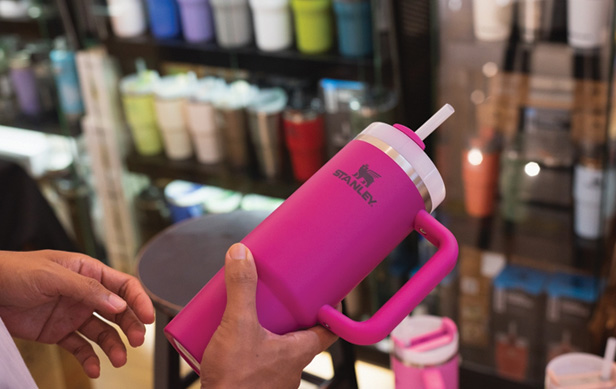Key Takeaways
• Lawsuit Dismissal: U.S. District Judge Tana Lin dismissed the lead-concern-driven class action lawsuit against Stanley’s parent company, Pacific Market International.
• Amendment Option: Plaintiffs have 45 days to file an amended complaint, which could, if done, restart the suit.
• Insufficient Evidence: The dismissal hinged, in part, on insufficient evidence being provided that showed harm stemming from Stanley’s initial nondisclosure of lead in its tumblers.
Popular drinkware brand Stanley’s parent company has prevailed in a lawsuit that consumers brought against it over lead concerns – at least for the time being.
In a Jan. 17 order, U.S. District Judge Tana Lin granted Pacific Market International’s (PMI) motion to dismiss the proposed class action complaint that a handful of plaintiffs from several states had filed against the Washington-based company.

However, Lin ruled that the consumers have 45 days to file an amended complaint – a step, if taken, that would reignite the lawsuit against PMI. As of this writing, the plaintiffs had not filed an amended complaint.
Put basically, the plaintiffs’ case hinged on allegations that PMI was guilty of fraud, various state-level consumer protection law violations and more because it failed to reveal that its popular Quencher tumbler and other models contain lead as part of a sealing agent in the base.
This failure to disclose, the plaintiffs argued, deceived consumers into buying products they otherwise would not have and exposed them to health risks that are said to stem from lead exposure.
PMI lawyers argued the case was fatally flawed and should be dismissed because the complaint failed to show any viable evidence that the presence of lead in Stanley tumblers has caused negative health effects on anyone who bought the drinkware.
Lin ultimately sided with PMI’s reasoning. “Plaintiffs have not sufficiently alleged that the omission was material, as they have not shown sufficient harm from the specific amount of lead in the Stanley cups,” Lin wrote in the dismissal order.
The order continued: “Contrary to plaintiffs’ assertion, ‘specific lead levels and physical harm’ are at issue – not because plaintiffs allege physical harm (which they do not), and not because they need to allege actual consumption of or exposure to lead (which they do not), but because they allege that the use of lead was material due to the attendant risk of physical harm. Thus, without sufficient allegations to show that the lead in the Stanley cups could pose actual harm to consumers, the apparent need for disclosure is a moot proposition.”
The plaintiffs were seeking what would have amounted to hundreds of millions of dollars in damages – to be given to consumers who bought Stanley tumblers.
The case was a consolidation of multiple class action lawsuits that consumers brought against PMI over the lead issue. The courts had previously denied PMI’s request to dismiss some of the cases in April 2024, opting instead to consolidate them.
The consumers filed the suit after social media influencers started talking about lead in the bases of Stanley tumblers in early 2024. PMI subsequently admitted to the presence of lead but said it never comes into contact with users and presents no health threats.
PMI/Stanley are engaged in other legal battles. In late December, a consumer filed a proposed class action lawsuit that accuses PMI of purposely not disclosing a lid defect and offering an inadequate remedy in response to a recent recall of millions of defective lids on its tumblers. The case is in its early stages.
Meanwhile, PMI has teamed up with e-commerce giant Amazon to file a lawsuit against third-party merchants who were allegedly selling counterfeit Stanley drinkware on Amazon’s platform. That case remains with the court as well.
Stanley tumblers have been extremely popular sellers at retail and in the promotional products industry. ASI Media named the Stanley Quencher the 2023 Product of the Year in the branded merch market. The items continue to generate a high level of searches in ASI’s product research and procurement databases, ESP and ESP+.


